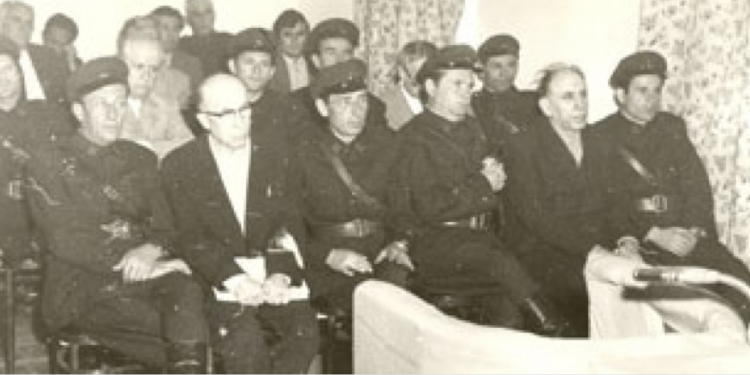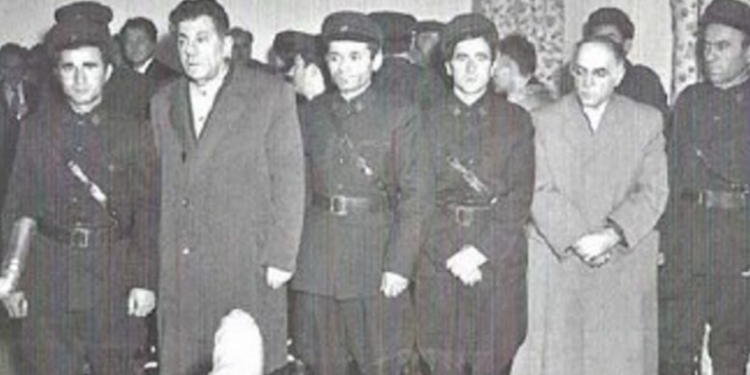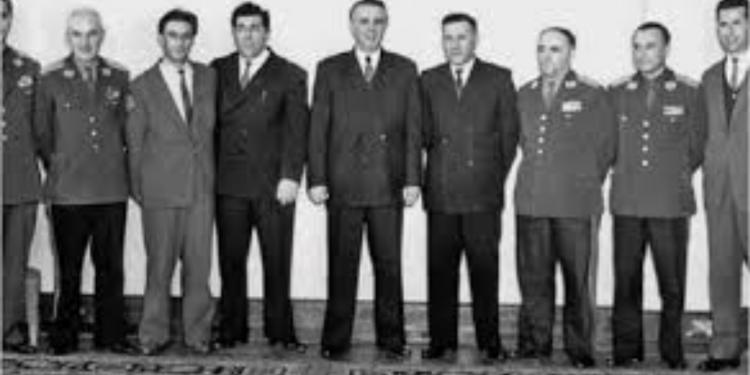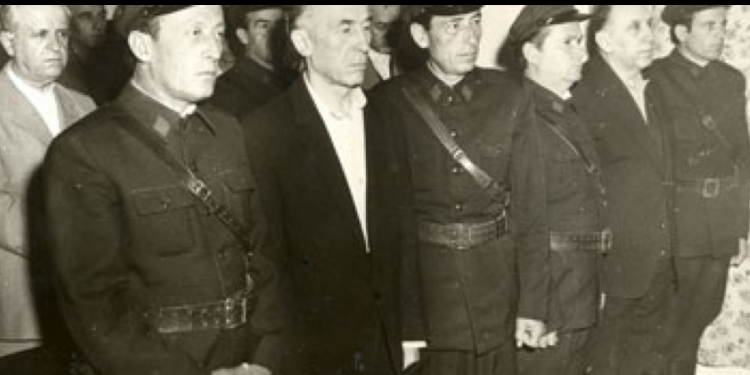Dashnor Kaloçi
Memorie.al publishes a list of 100 names of prominent personalities, as founders of the Communist Party of Albania since 1941, leaders of the Anti-Fascist National Liberation War as commanders and commissars, and later senior staff and functionaries of the Communist regime. Enver Hoxha, who over the years was accused of being “enemies of the people and criminals” and sentenced to death, died in investigative cells and prisons, or suffered years of political persecution in the prisons and internment camps of that regime. …
During its 50 years of existence, the Albanian Communist Party, then called the Party of Labor of Albania, tragically eliminated from its ranks almost all of the highest and most vocal exponents they had founded, or which had significantly contributed to the consolidation of its power. All these characters who were physically assaulted or eliminated by the Communist regime of Enver Hoxha had devotedly served until the very last moment, this very party, and its leader, Enver Hoxha, who with a pencil drop deciding which ones to keep living, and which ones not! The contribution of these great personalities of Albanian Communism begins with the founding of the Communist Party on November 8, 1941, and then with the Anti-Fascist National Liberation War, to end with the period, usually in historiography of that time. time would also be labeled as the “socialist construction of the country” in 1944-1991. Ironically, the 100 characters on this list can even be described as the leaders of the Albanian Communist regime (at least a good part of them), who were well-educated in the most popular schools and academies. of the East or of the West in the 1930s and 40s of the last century and until 1961 in the countries of the Communist East, or as it was then called by official propaganda, as “People’s Democracies”. Some of these characters had helped Enver Hoxha in the struggles for the coming to power of the Party he led in war-torn Albania in 1943-1944, while others had helped him cement the roots of his absolute power in the hierarchy. of the Labor Party of Albania. While the third and final part would be the most tragic one, which zealously accompanied dictator Hoxha in the wake of his fierce 45-year rule in the country. And right at the end, this piece, without waiting, fell prey to its own monstrous crimes! Charges for them would be set in the dark corridors of the shady-heavy building that once had not only Tirana but the entire site of the Central Committee of the Albanian Labor Party, with their implementation being in charge of the Ministry of Internal Affairs. of its branches and numerous departments, the most prominent of which was the State Security, which Enver himself had regarded as the “sharp tip of the sword of the dictatorship of the proletariat”?! The paranoid nature of the Albanian Communist regime would label these unfortunates as “enemies of the people”, “traitors to the homeland”, “agents of the Yugoslav UDB, the Soviet KGB, the American CIA” of all sorts. other epithets of various kinds. But their only “fault” that they would only realize when they saw themselves in the dark cells of Investigators or Security, political camps and prisons or remote villages in internment, was that they had supported and served until At that moment Enver Hoxha’s power ?! Many remained loyal to the point that when they were sentenced to death and executed, they took the courage and courage to apologize to him, even writing letters from prison or internment where would declare him eternal faithfulness! Likewise another part of them, with the firing squad on their heads, would shout his name until the last few seconds, having some sort of “hope” that their ruler could forgive them! Unfortunately, that would not be the case. Because the model of the campaign of purges and eliminations that Enver Hoxha would carry out on his comrades, associates and colleagues was identical in copy to the Communist Party of the Soviet Union and personally to its leader, Joseph Visarionovich Stalin. This method was imported into official Tirana thousands of miles away from Moscow, where within its Kremlin walls its leaders “ate” each other and those who remained on top of it “ate” the next cut. The story of Albania’s Labor Party is tragically similar to its Soviet counterpart, a story of suffering and purges, a story of eliments and mysterious killings of its founders and mainstream members. Frighteningly, this method of rule after 1945 spread to all the communist states of the East, where of course even small Albania would absorb and adapt it to its model. And that would be because the very person who would export this model to the communist world, Joseph Visarionovich Stalin, would at the same time serve as a guide and an idol for the Albanian communist dictator, Enver Hoxha, with a list of purges of his close associates. , it’s hundreds. At this writing, Memorie.al brings the first 25 characters of this list of 100 names.
It follows from the past number
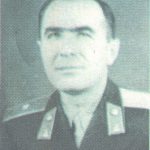 Arif Hasko, Communist and Battalion Commissar in the 1st Brigade. After the Hasko war, he served as commissar of the Division of Gjirokastra and later of that of Dibra. In the 1950s, he graduated from the “Voroshilov” Academy in Moscow. Upon his return home, he was appointed commander of the II Corps in Kruja, and later Chief of the General Staff of the Army. Lieutenant-Colonel, in 1958, he is commander of the Air Defense. Until 1976, he was Deputy Minister of National Defense. Arif Hasko was also a member of the People’s Assembly in the years 50-60. He retired in 1976, and in 1982 he was arrested and convicted as a supporter of the military coup. He left Burrel prison in 1991.
Arif Hasko, Communist and Battalion Commissar in the 1st Brigade. After the Hasko war, he served as commissar of the Division of Gjirokastra and later of that of Dibra. In the 1950s, he graduated from the “Voroshilov” Academy in Moscow. Upon his return home, he was appointed commander of the II Corps in Kruja, and later Chief of the General Staff of the Army. Lieutenant-Colonel, in 1958, he is commander of the Air Defense. Until 1976, he was Deputy Minister of National Defense. Arif Hasko was also a member of the People’s Assembly in the years 50-60. He retired in 1976, and in 1982 he was arrested and convicted as a supporter of the military coup. He left Burrel prison in 1991.
-
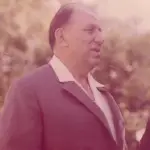 Abdyl Kellezi, Communist and Deputy Commander of the II Attack Brigade. He interrupts military studies in Italy and comes to Albania to join the anti-fascist movement. Member of the National Assembly since the first elections of 1945, and Governor of the National Bank. Member of the Political Bureau of the Central Committee of the ASP. Minister of Finance and Deputy Prime Minister of Albania until 1975 when he was dismissed from all party and state functions, being accused of being the head of the sabotage group in the Economy. Sentenced to death and executed in May 1977 along with Koco Theodhosi. His tomb has yet to be found.
Abdyl Kellezi, Communist and Deputy Commander of the II Attack Brigade. He interrupts military studies in Italy and comes to Albania to join the anti-fascist movement. Member of the National Assembly since the first elections of 1945, and Governor of the National Bank. Member of the Political Bureau of the Central Committee of the ASP. Minister of Finance and Deputy Prime Minister of Albania until 1975 when he was dismissed from all party and state functions, being accused of being the head of the sabotage group in the Economy. Sentenced to death and executed in May 1977 along with Koco Theodhosi. His tomb has yet to be found.
-
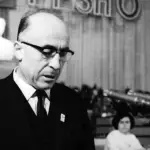 Koço Theodhosi, Communist with leadership positions at the UNHCR General Staff. Graduated in chemical engineering in France and Belgium, MP in the People’s Assembly. Member of the Political Bureau of the Central Committee of the ASP. Chairman of the State Planning Commission in the 1960s and then Deputy Prime Minister. Minister of Industry and Mining until 1975 when he was dismissed from all party and state office, being accused of being the head of the Sabotage Group in the Economy. Sentenced to death and executed in May 1977 along with Abdyl Kellez. His tomb has not been found yet.
Koço Theodhosi, Communist with leadership positions at the UNHCR General Staff. Graduated in chemical engineering in France and Belgium, MP in the People’s Assembly. Member of the Political Bureau of the Central Committee of the ASP. Chairman of the State Planning Commission in the 1960s and then Deputy Prime Minister. Minister of Industry and Mining until 1975 when he was dismissed from all party and state office, being accused of being the head of the Sabotage Group in the Economy. Sentenced to death and executed in May 1977 along with Abdyl Kellez. His tomb has not been found yet.
-
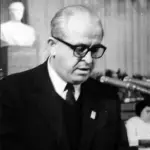 Kiço Ngjela, Partisan and Deputy Commissar of the Second Attacked Brigade, member of the Central Committee, MP in the People’s Assembly. Then, Minister of Foreign Trade. He was arrested in 1975 on charges of belonging to the Puccini Group in Economics and sentenced to 25 years in prison. He was released from Burrel Prison together with his two sons Linc and Spartacus in 1991 alone.
Kiço Ngjela, Partisan and Deputy Commissar of the Second Attacked Brigade, member of the Central Committee, MP in the People’s Assembly. Then, Minister of Foreign Trade. He was arrested in 1975 on charges of belonging to the Puccini Group in Economics and sentenced to 25 years in prison. He was released from Burrel Prison together with his two sons Linc and Spartacus in 1991 alone.
-
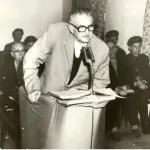 Vasil Kati, Communist and partisan with leadership functions in Gjirokastra region. Member of the Central Committee, Member of the People’s Assembly, Deputy Minister and Minister of Trade until 1975 when he was dismissed from all state and party functions. He was convicted along with Abdyl Kellezi, Koco Theodhosi, and Kiço Ngjela as a member of the hostile Economics Group. He is sentenced to 25 years in prison, while his family is deported to the villages of Berat. Released after 1990.
Vasil Kati, Communist and partisan with leadership functions in Gjirokastra region. Member of the Central Committee, Member of the People’s Assembly, Deputy Minister and Minister of Trade until 1975 when he was dismissed from all state and party functions. He was convicted along with Abdyl Kellezi, Koco Theodhosi, and Kiço Ngjela as a member of the hostile Economics Group. He is sentenced to 25 years in prison, while his family is deported to the villages of Berat. Released after 1990.
-
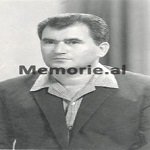 Ndue Marashi, a well-known leader of some agricultural economies, a member of the Central Committee of the LLP and Chairman of the Executive Committee of the Tirana District until 1975 when he began to be surveyed by the State Security on the absurd charge of poisoning. of 100 cows in the village of Baldushk. He is found dead in his home in December 1975, with a pistol bullet in his body. Official version, suicide. After the 1990s, his family members publicly stated in the press the opposite of that version.
Ndue Marashi, a well-known leader of some agricultural economies, a member of the Central Committee of the LLP and Chairman of the Executive Committee of the Tirana District until 1975 when he began to be surveyed by the State Security on the absurd charge of poisoning. of 100 cows in the village of Baldushk. He is found dead in his home in December 1975, with a pistol bullet in his body. Official version, suicide. After the 1990s, his family members publicly stated in the press the opposite of that version.
-
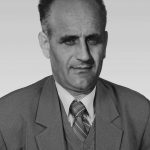 Filip (Lipe) Nashi, in 1942 affiliated with the National Liberation Movement. It is part of the XII Offensive Brigade. At the end of the war the rank of Z / Commander of the battalion is reached. In 1951 the rank of first captain. He is released from the army and appointed to the Central Committee of Tirana. In 1952 he led the party in the oil sector of Kuçovë (Stalin City). In 1965-1975 he headed the General Directorate of Petroleum. On 25.02.1975, by decision of the Political Bureau, he was suspended from his post as Director General of Oil and Gas. On March 25, 1975, he was arrested at the Plenum of Patos. From dt. 11 to 17.06.1976 the oil court trial of the closed group of the oil group headed by Philip (Lipe) Apostol Nashi takes place. Members of the hostile oil group are. Beqir Alia, Koco Elder, Milto Gjikopulli, Protoko Murati, Jani Konomi, Nuredin Skrapari, who were accused of collaborating with each other to commit crime of sabotage, propaganda agitation and abuse of office. Lipe Nashi was sentenced to 25 years for sabotage, 10 years for propaganda agitation and 7 years for abuse of office, eventually 25 years for deprivation of liberty. In 1986 he was arrested at the Burrel Prison where he was serving his sentence and brought to Fier cells. It was the time when the other oil group headed by Petraq Jachka, Enrico Veizi and others were discovered. In 1991 he was released from prison.
Filip (Lipe) Nashi, in 1942 affiliated with the National Liberation Movement. It is part of the XII Offensive Brigade. At the end of the war the rank of Z / Commander of the battalion is reached. In 1951 the rank of first captain. He is released from the army and appointed to the Central Committee of Tirana. In 1952 he led the party in the oil sector of Kuçovë (Stalin City). In 1965-1975 he headed the General Directorate of Petroleum. On 25.02.1975, by decision of the Political Bureau, he was suspended from his post as Director General of Oil and Gas. On March 25, 1975, he was arrested at the Plenum of Patos. From dt. 11 to 17.06.1976 the oil court trial of the closed group of the oil group headed by Philip (Lipe) Apostol Nashi takes place. Members of the hostile oil group are. Beqir Alia, Koco Elder, Milto Gjikopulli, Protoko Murati, Jani Konomi, Nuredin Skrapari, who were accused of collaborating with each other to commit crime of sabotage, propaganda agitation and abuse of office. Lipe Nashi was sentenced to 25 years for sabotage, 10 years for propaganda agitation and 7 years for abuse of office, eventually 25 years for deprivation of liberty. In 1986 he was arrested at the Burrel Prison where he was serving his sentence and brought to Fier cells. It was the time when the other oil group headed by Petraq Jachka, Enrico Veizi and others were discovered. In 1991 he was released from prison. -
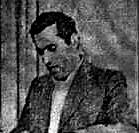 Pirro Gusho, communist and partisan in the district of Fier. Members of the People’s Assembly and member of the Central Committee of the ASP. First secretary of the Party Committee of the district of Fier until 1975 when the so-called Hostile Oil Group was struck. A few minutes after the end of the party’s plenary meeting in Fier, where “hostile work on oil” was being discussed, while awaiting arrest, he killed himself with a handgun in his home in the 15 October neighborhood.
Pirro Gusho, communist and partisan in the district of Fier. Members of the People’s Assembly and member of the Central Committee of the ASP. First secretary of the Party Committee of the district of Fier until 1975 when the so-called Hostile Oil Group was struck. A few minutes after the end of the party’s plenary meeting in Fier, where “hostile work on oil” was being discussed, while awaiting arrest, he killed himself with a handgun in his home in the 15 October neighborhood.
-
 Thoma Deliana attended Normal School until 1943. In November 1943 he was a member of the Communist Party. In November-December 1944 he was in charge of youth in the 7th Division in Korça. From December 1944 until April 1945 he was in charge of the political section of the VIII Division in Bishopric. In May 1945 he was elected a member of the Central Committee of the Party for Elbasan until January 1946 and from January 1946 until September 1947 was secretary of the KP District Committee in Elbasan. In September 1947 until December 1948 he was chairman of the State Planning Commission. In 1948 – 1951; 1953 – 1955 Chief of Staff and 1951 – 1953 Deputy Director in the Directorate of Framework in the Party’s Central Committee. In 1955 – 1958 he attended the Party High School in Moscow. During 1952 – 1976 he was a member of the Central Committee of the Party and from 1954 to 1976 a Member of Parliament. In 1958 – 1961 he was the first secretary of the Labor Party Committee in Elbasan district. From 1961 – 1965 he served as First Deputy Minister of Education. From 1965 – 1966 he served as Minister of Education and from 1966 Minister of Education and Culture for the next ten years. In 1975 he was convicted as part of a hostile education-culture group led by Abdyl Kellezin, for which he was dismissed from his ministerial post. In 1976 – 1977 he was sentenced to internment as headmaster of Dhemblan High School in Tepelena, after 1977 he was dismissed and worked as a shepherd and farmer.
Thoma Deliana attended Normal School until 1943. In November 1943 he was a member of the Communist Party. In November-December 1944 he was in charge of youth in the 7th Division in Korça. From December 1944 until April 1945 he was in charge of the political section of the VIII Division in Bishopric. In May 1945 he was elected a member of the Central Committee of the Party for Elbasan until January 1946 and from January 1946 until September 1947 was secretary of the KP District Committee in Elbasan. In September 1947 until December 1948 he was chairman of the State Planning Commission. In 1948 – 1951; 1953 – 1955 Chief of Staff and 1951 – 1953 Deputy Director in the Directorate of Framework in the Party’s Central Committee. In 1955 – 1958 he attended the Party High School in Moscow. During 1952 – 1976 he was a member of the Central Committee of the Party and from 1954 to 1976 a Member of Parliament. In 1958 – 1961 he was the first secretary of the Labor Party Committee in Elbasan district. From 1961 – 1965 he served as First Deputy Minister of Education. From 1965 – 1966 he served as Minister of Education and from 1966 Minister of Education and Culture for the next ten years. In 1975 he was convicted as part of a hostile education-culture group led by Abdyl Kellezin, for which he was dismissed from his ministerial post. In 1976 – 1977 he was sentenced to internment as headmaster of Dhemblan High School in Tepelena, after 1977 he was dismissed and worked as a shepherd and farmer.
-
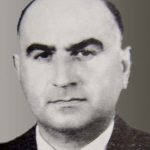 Pirro Dodbiba, admitted to the Communist Party in 1943 and sent to Dajti’s gang in October as youth charge and later as deputy commissar. In 1944 he was appointed deputy commissar of the battalion in the 3rd Brigade. Until October 1945 he held positions in the party and in the army. In 1945 – 1950 he studied at the Timirjazev Agricultural Academy in Moscow. In 1950 – 1951 he served as Deputy Minister of Agriculture, in 1951 – 1956 he was appointed the first director of the Higher Agricultural Institute in Kamza. In 1956 – 1962 he served as director of the Directorate of Agriculture in the PP Central Committee and in 1961 member. In 1962 he was deputy chairman of the People’s Assembly, where he remained a member from the fifth to eighth legislatures. In 1962 – 1965 he was the first secretary of the PP Committee in Fier. From 1965 to 1976 Minister of Agriculture in the Shehu governments until he was dismissed on April 24, 1976. In November he lost his seat in the People’s Assembly and after 1976 worked as an agrarian economist on the Lakatund farm, where he was interned with his family. Released after 1990.
Pirro Dodbiba, admitted to the Communist Party in 1943 and sent to Dajti’s gang in October as youth charge and later as deputy commissar. In 1944 he was appointed deputy commissar of the battalion in the 3rd Brigade. Until October 1945 he held positions in the party and in the army. In 1945 – 1950 he studied at the Timirjazev Agricultural Academy in Moscow. In 1950 – 1951 he served as Deputy Minister of Agriculture, in 1951 – 1956 he was appointed the first director of the Higher Agricultural Institute in Kamza. In 1956 – 1962 he served as director of the Directorate of Agriculture in the PP Central Committee and in 1961 member. In 1962 he was deputy chairman of the People’s Assembly, where he remained a member from the fifth to eighth legislatures. In 1962 – 1965 he was the first secretary of the PP Committee in Fier. From 1965 to 1976 Minister of Agriculture in the Shehu governments until he was dismissed on April 24, 1976. In November he lost his seat in the People’s Assembly and after 1976 worked as an agrarian economist on the Lakatund farm, where he was interned with his family. Released after 1990.
-
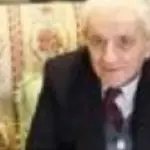 Mantho Bala, partisan and exporter of the UNSHA in the Coastal Zone. Former Deputy Minister of Education and Culture for 8 years during the communist regime and secretary of the basic party organization for his ministry. After resisting the interventions of the First Secretary of the Party of Tirana, Manush Myftiu, in 1976 he was attacked and convicted by being expelled from the Party, being dismissed from his post and interned in Dumre, Elbasan. The charges included two anonymous letters denouncing the support he had given them, actor Robert Ndrenika, who had a fugitive brother, for the role in the movie “Threads to Expect”. The role was later dropped.
Mantho Bala, partisan and exporter of the UNSHA in the Coastal Zone. Former Deputy Minister of Education and Culture for 8 years during the communist regime and secretary of the basic party organization for his ministry. After resisting the interventions of the First Secretary of the Party of Tirana, Manush Myftiu, in 1976 he was attacked and convicted by being expelled from the Party, being dismissed from his post and interned in Dumre, Elbasan. The charges included two anonymous letters denouncing the support he had given them, actor Robert Ndrenika, who had a fugitive brother, for the role in the movie “Threads to Expect”. The role was later dropped.
-
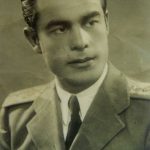 Edip Ohri, 1942 finishes high school studies in Elbasan. In the same year he joined the resistance movement against the Italian occupation. He was arrested by the occupation authorities, but in 1943 escaped from prison. During the war he was a deputy company commander of the II Attack Brigade, within the National Liberation Army. In November 1944 he participated in the liberation of the Korça-Pogradec area as a reconnaissance officer of the II Attack Brigade. In the same year he became a member of the Communist Party. In 1945 he enrolled at the Panczeëie flight school near Belgrade and a few months later he moved to the Soviet Union. In 1948 he graduated pilot for bomber aircraft. He continued his studies in 1949-1952 at the Academy of the Soviet Air Force. From 1954-1955 he studied at the air management school in Grozny. Upon returning home, Oedipus Ohrid was promoted to “colonel” and appointed commander of the Albanian military aviation. As a member of the Albanian delegation he regularly attended Warsaw Pact meetings. In 1969 he completed the course for a General Staff officer. In 1971-1972 he studied in China in the field of transport aviation unit command. In 1975, he was suddenly released from the army. In 1974-1978 he was a Member of Parliament. He was arrested on October 16, 1980, and charged with preparing a military coup and anti-state propaganda. After several months of investigation, Edip Ohri, along with six other officers, is on trial. In January 1981, he was sentenced to 14 years in prison, originally sentenced in Ballsh in Zaymen. In 1985, he was sent to the infamous Burrel prison where he remained until he was released as a result of the November 29, 1989, amnesty.
Edip Ohri, 1942 finishes high school studies in Elbasan. In the same year he joined the resistance movement against the Italian occupation. He was arrested by the occupation authorities, but in 1943 escaped from prison. During the war he was a deputy company commander of the II Attack Brigade, within the National Liberation Army. In November 1944 he participated in the liberation of the Korça-Pogradec area as a reconnaissance officer of the II Attack Brigade. In the same year he became a member of the Communist Party. In 1945 he enrolled at the Panczeëie flight school near Belgrade and a few months later he moved to the Soviet Union. In 1948 he graduated pilot for bomber aircraft. He continued his studies in 1949-1952 at the Academy of the Soviet Air Force. From 1954-1955 he studied at the air management school in Grozny. Upon returning home, Oedipus Ohrid was promoted to “colonel” and appointed commander of the Albanian military aviation. As a member of the Albanian delegation he regularly attended Warsaw Pact meetings. In 1969 he completed the course for a General Staff officer. In 1971-1972 he studied in China in the field of transport aviation unit command. In 1975, he was suddenly released from the army. In 1974-1978 he was a Member of Parliament. He was arrested on October 16, 1980, and charged with preparing a military coup and anti-state propaganda. After several months of investigation, Edip Ohri, along with six other officers, is on trial. In January 1981, he was sentenced to 14 years in prison, originally sentenced in Ballsh in Zaymen. In 1985, he was sent to the infamous Burrel prison where he remained until he was released as a result of the November 29, 1989, amnesty.
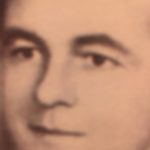 Sabri Pilkati, a communist and partisan in the Kolonja area where he also served as a Military Prosecutor. He then served as a Political Intelligence Officer in several countries around the world. For several years he served as Chairman of the Tirana Executive Committee until he was arrested in 1981 on charges of being a member of a hostile group of 6 people, all known by high-profile positions. Sentenced to 10 years in prison in Burrel and released in 1990.
Sabri Pilkati, a communist and partisan in the Kolonja area where he also served as a Military Prosecutor. He then served as a Political Intelligence Officer in several countries around the world. For several years he served as Chairman of the Tirana Executive Committee until he was arrested in 1981 on charges of being a member of a hostile group of 6 people, all known by high-profile positions. Sentenced to 10 years in prison in Burrel and released in 1990.
-
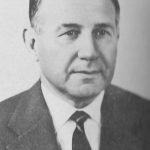 Mehmet Shehu, a former fighter of the internationalist brigades in the Spanish civil war, commander of the First Offensive Brigade and the First Division. He graduated from the Frunze Military Academy in Moscow, Lieutenant-Colonel, Chief of the Albanian State, Minister of Communications, Minister of Interior, Minister of Defense and Prime Minister of Albania for nearly three decades. People’s Hero and member of the Political Bureau. Secretary of the Central Committee of the ASP. At midnight on December 17, 1981, he found himself killed in his bedroom. The official version, self-murder though, after 1990, many relatives and former colleagues allude to facts and arguments to the contrary. Father of elimination. Hours later he was indicted by Enver Hoxha at a PLC CC Plenum meeting, as one of the most dangerous poly-agents Albania has ever seen. A few months after his death, his son, Vladimir, would have himself killed in suspicious circumstances in Gramsh.
Mehmet Shehu, a former fighter of the internationalist brigades in the Spanish civil war, commander of the First Offensive Brigade and the First Division. He graduated from the Frunze Military Academy in Moscow, Lieutenant-Colonel, Chief of the Albanian State, Minister of Communications, Minister of Interior, Minister of Defense and Prime Minister of Albania for nearly three decades. People’s Hero and member of the Political Bureau. Secretary of the Central Committee of the ASP. At midnight on December 17, 1981, he found himself killed in his bedroom. The official version, self-murder though, after 1990, many relatives and former colleagues allude to facts and arguments to the contrary. Father of elimination. Hours later he was indicted by Enver Hoxha at a PLC CC Plenum meeting, as one of the most dangerous poly-agents Albania has ever seen. A few months after his death, his son, Vladimir, would have himself killed in suspicious circumstances in Gramsh.
-
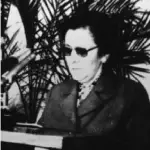 Fiqrete (Sanxhaktari) Shehu, a Communist and partisan frontier with political leadership functions in the Brigade and First Attack Division. Member of the People’s Assembly, Secretary of the Party Committee of Tirana, member of the Central Committee of the SPL and Principal of the Party “Vladimir Ilic Lenin” in Tirana until 1981, when, following the stabbing of her husband, the Prime Minister Mehmet Shehu, dismissed from all party and state functions, ended up in jail with her two sons. He died seriously ill in 1988 in the prison of Shenkoll in Lezha.
Fiqrete (Sanxhaktari) Shehu, a Communist and partisan frontier with political leadership functions in the Brigade and First Attack Division. Member of the People’s Assembly, Secretary of the Party Committee of Tirana, member of the Central Committee of the SPL and Principal of the Party “Vladimir Ilic Lenin” in Tirana until 1981, when, following the stabbing of her husband, the Prime Minister Mehmet Shehu, dismissed from all party and state functions, ended up in jail with her two sons. He died seriously ill in 1988 in the prison of Shenkoll in Lezha.
-
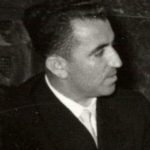 Bato Karafili, exponent of LANC in the district of Gjirokastra, for Permet district in VI Brigade. After his liberation, he assumed important duties in the People’s Protection Division, and was later appointed ambassador to several Eastern European countries. His career continues as First Secretary of Përmet and later Secretary of the Central Committee of the Ministry of Internal Affairs. Mysteriously killed himself in 1982, through some drugs that influenced hyper-tension. While his family is exiled to the isolated villages of Permet.
Bato Karafili, exponent of LANC in the district of Gjirokastra, for Permet district in VI Brigade. After his liberation, he assumed important duties in the People’s Protection Division, and was later appointed ambassador to several Eastern European countries. His career continues as First Secretary of Përmet and later Secretary of the Central Committee of the Ministry of Internal Affairs. Mysteriously killed himself in 1982, through some drugs that influenced hyper-tension. While his family is exiled to the isolated villages of Permet.
-
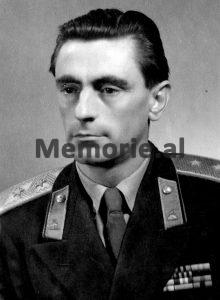 Kadri Hazbiu, Communist and first-time partisan in the 5th Brigade with command functions. Chief of Army Security, Director of State Security, and Minister of the Interior, member of the Political Bureau of the Central Committee of the APL, People’s Hero, Member of the People’s Assembly and Minister of Defense until October 1982 when he was arrested by was accused of being Mehmet Shehu’s closest associate. He was sentenced to death and executed at midnight on September 10, 1983.
Kadri Hazbiu, Communist and first-time partisan in the 5th Brigade with command functions. Chief of Army Security, Director of State Security, and Minister of the Interior, member of the Political Bureau of the Central Committee of the APL, People’s Hero, Member of the People’s Assembly and Minister of Defense until October 1982 when he was arrested by was accused of being Mehmet Shehu’s closest associate. He was sentenced to death and executed at midnight on September 10, 1983.
 Feçor Shehu, a Communist and partisan, carried out important duties at the Ministry of Interior and State Security after the end of the War. Chairman of the Shkodra Interior Branch, Deputy Minister of the Interior, Member of the People’s Assembly, candidate for the Central Committee of the SPL and Minister of the Interior in 1980-1982 when he was arrested as Kadri Kazbiu’s closest associate. After being tortured during the investigation, he was sentenced to death and executed in the hills of Linza on September 10, 1983.
Feçor Shehu, a Communist and partisan, carried out important duties at the Ministry of Interior and State Security after the end of the War. Chairman of the Shkodra Interior Branch, Deputy Minister of the Interior, Member of the People’s Assembly, candidate for the Central Committee of the SPL and Minister of the Interior in 1980-1982 when he was arrested as Kadri Kazbiu’s closest associate. After being tortured during the investigation, he was sentenced to death and executed in the hills of Linza on September 10, 1983.
-
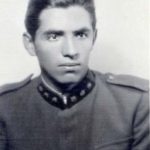 Llambi Peçini, Communist and Partisan with leadership functions. After the end of the war, he served in the Interior Ministry, working in Intelligence, near the Albanian Embassy in Paris. In the 1960s he was appointed to the position of Chief of Security at the Second Directorate of the Ministry of Interior and later as the head of the Vlora Branch. In 1982, he was arrested on charges of being part of a hostile group led by Kadri Hazbiu and sentenced to death by execution.
Llambi Peçini, Communist and Partisan with leadership functions. After the end of the war, he served in the Interior Ministry, working in Intelligence, near the Albanian Embassy in Paris. In the 1960s he was appointed to the position of Chief of Security at the Second Directorate of the Ministry of Interior and later as the head of the Vlora Branch. In 1982, he was arrested on charges of being part of a hostile group led by Kadri Hazbiu and sentenced to death by execution.
-
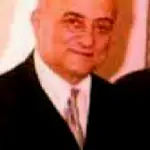 Llambi Ziçishti, a Communist and Partisan, graduated in Medicine after the War and served until 1981 as Minister of Health and an MP in the People’s Assembly. He was arrested in 1982 and sentenced to death, accused of being a close associate of Mehmet Shehu, and by his own order had wanted to poison Enver Hoxha at the Vlora villa. It was executed on the night of September 10, 1983, together with Kadri Hazbiu, Llambi Pecini and Feçor Shehu. After the 1990s, his brother, Mihallaq Zicishti, publicly claimed that the cause of the shooting of Lampi was the fact that from his doctor’s post he had cast doubt on Mehmet Shehu’s suicide.
Llambi Ziçishti, a Communist and Partisan, graduated in Medicine after the War and served until 1981 as Minister of Health and an MP in the People’s Assembly. He was arrested in 1982 and sentenced to death, accused of being a close associate of Mehmet Shehu, and by his own order had wanted to poison Enver Hoxha at the Vlora villa. It was executed on the night of September 10, 1983, together with Kadri Hazbiu, Llambi Pecini and Feçor Shehu. After the 1990s, his brother, Mihallaq Zicishti, publicly claimed that the cause of the shooting of Lampi was the fact that from his doctor’s post he had cast doubt on Mehmet Shehu’s suicide.
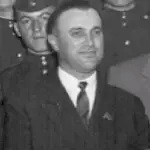 Mihallaq Ziçishti, Communist and partisan of leading positions, Major General, Deputy Minister of Internal Affairs and Director of State Security, Member of the People’s Assembly in the late 1960s, appointed Secretary first of the Party Committee of the district of Korça and then of Durres. He was arrested in 1982 as a member of Kadri Hazbi’s hostile group and sentenced to 25 years in prison. Released from Burrel Prison in 1991.
Mihallaq Ziçishti, Communist and partisan of leading positions, Major General, Deputy Minister of Internal Affairs and Director of State Security, Member of the People’s Assembly in the late 1960s, appointed Secretary first of the Party Committee of the district of Korça and then of Durres. He was arrested in 1982 as a member of Kadri Hazbi’s hostile group and sentenced to 25 years in prison. Released from Burrel Prison in 1991.
-
 Gani Kodra, one of the most prominent exponents of the Ministry of Internal Affairs. Graduated from the Moscow “Jerzhinskiy Academy” in Profiling Insurance. For 20 years he has served in important positions in the State Security, namely the Second Directorate. Hill is also the Chief of Security of the Political Bureau. Promoted to Colonel.In 1982, he was arrested, along with Kadri Hazbiu and Feçor Shehu, in the so-called puçist group of the Ministry of Internal Affairs. After the trial, he was sentenced to 10 years in prison, of which he served 8 in Burrel prison. Released in 1991.
Gani Kodra, one of the most prominent exponents of the Ministry of Internal Affairs. Graduated from the Moscow “Jerzhinskiy Academy” in Profiling Insurance. For 20 years he has served in important positions in the State Security, namely the Second Directorate. Hill is also the Chief of Security of the Political Bureau. Promoted to Colonel.In 1982, he was arrested, along with Kadri Hazbiu and Feçor Shehu, in the so-called puçist group of the Ministry of Internal Affairs. After the trial, he was sentenced to 10 years in prison, of which he served 8 in Burrel prison. Released in 1991.
-
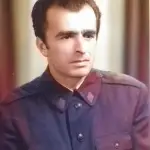 Elham Gjika, one of the top exponents of the Ministry of Internal Affairs. In the years 50-60 he performed the duty of Security Officer (Investigator) in the Directorate of Internal Affairs of Tirana. He is then promoted to Major and serves in the Directorate of State Security Investigation. Elham Gjika has investigated many of the Politburo exponents who were convicted in 1973-1975. In the mid-1970s until he was arrested in 1982, he served as Director of the MIA Investigation Directorate. Arrested and sentenced as supporters of Mehmet Shehu and Kadri Hazbiu. He was also charged with involvement in the infamous embassy car incident in 1980-1981. Sentenced to 8 years in prison and released in 1991.
Elham Gjika, one of the top exponents of the Ministry of Internal Affairs. In the years 50-60 he performed the duty of Security Officer (Investigator) in the Directorate of Internal Affairs of Tirana. He is then promoted to Major and serves in the Directorate of State Security Investigation. Elham Gjika has investigated many of the Politburo exponents who were convicted in 1973-1975. In the mid-1970s until he was arrested in 1982, he served as Director of the MIA Investigation Directorate. Arrested and sentenced as supporters of Mehmet Shehu and Kadri Hazbiu. He was also charged with involvement in the infamous embassy car incident in 1980-1981. Sentenced to 8 years in prison and released in 1991.
-
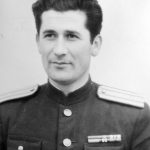 Kristofor Martiro, at the age of 16, participated in the Anti-Fascist National Liberation Movement. A year later, he will be accepted as a member of the Albanian Communist Party. After liberation he participated in the People’s Protection Division. Graduated from the two-year school of APL, after which he was appointed a lecturer at the School of the Ministry of Internal Affairs, where he served until 1967. From 1967 to 1982 he worked in the State Security organs in various positions, as Vice President. Department of Internal Affairs of Korça, Head of the Branch of the Ministry of Internal Affairs. During 1975-1978, he was commissioned as part of a “coup d’etat” investigative group that would investigate Beqir Balluk and “saboteurs in the economy and state organization”, where he investigated Kiço Ngjela and Vasil Kati. In 1978 he was appointed chairman of the Special State Security Branch. He was arrested and sentenced to 15 years in prison on April 13, 1982, and served his sentence in the Saranda prison until 1989.
Kristofor Martiro, at the age of 16, participated in the Anti-Fascist National Liberation Movement. A year later, he will be accepted as a member of the Albanian Communist Party. After liberation he participated in the People’s Protection Division. Graduated from the two-year school of APL, after which he was appointed a lecturer at the School of the Ministry of Internal Affairs, where he served until 1967. From 1967 to 1982 he worked in the State Security organs in various positions, as Vice President. Department of Internal Affairs of Korça, Head of the Branch of the Ministry of Internal Affairs. During 1975-1978, he was commissioned as part of a “coup d’etat” investigative group that would investigate Beqir Balluk and “saboteurs in the economy and state organization”, where he investigated Kiço Ngjela and Vasil Kati. In 1978 he was appointed chairman of the Special State Security Branch. He was arrested and sentenced to 15 years in prison on April 13, 1982, and served his sentence in the Saranda prison until 1989.
-
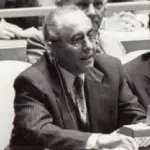 Nesti Nase, Communist and first-time partisan with leadership functions. After the end of the war he served in the diplomacy and performed various tasks. Member of the People’s Assembly, Deputy Minister and Minister of Foreign Affairs from 1963 to 1982, when he was arrested and sentenced to 25 years in prison as a member of the hostile Kadri Hazbiun group. He was released from Burrel prison in 1991.
Nesti Nase, Communist and first-time partisan with leadership functions. After the end of the war he served in the diplomacy and performed various tasks. Member of the People’s Assembly, Deputy Minister and Minister of Foreign Affairs from 1963 to 1982, when he was arrested and sentenced to 25 years in prison as a member of the hostile Kadri Hazbiun group. He was released from Burrel prison in 1991.
Memorie.al




